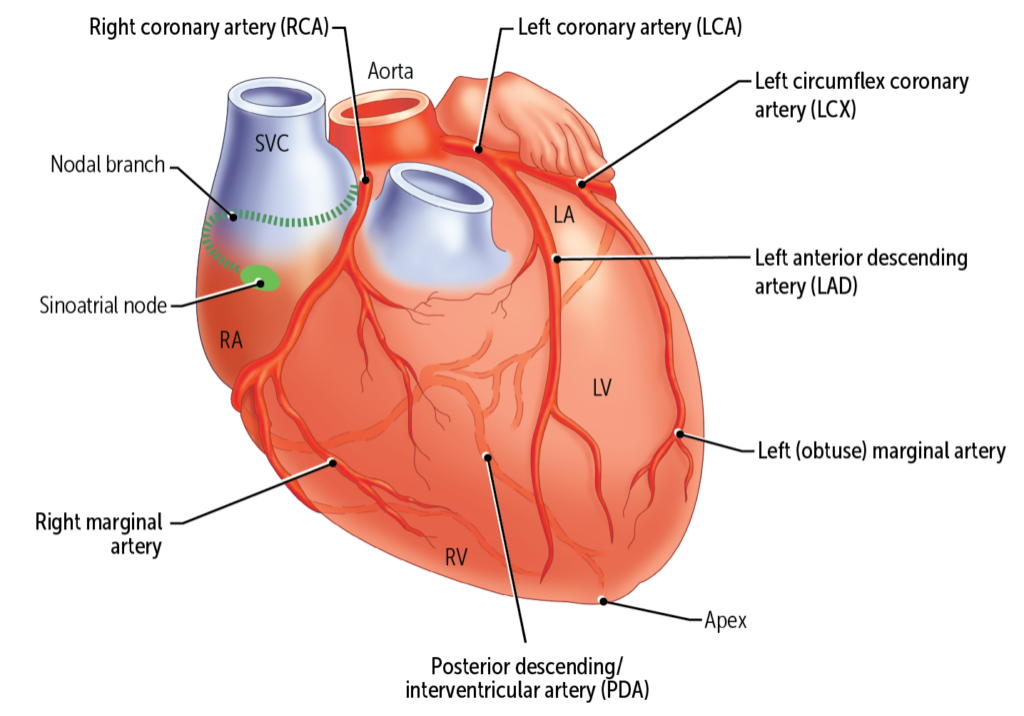Understanding and reflecting are the keys to long-term memory retention and the creation of polysynaptic memories. Before we can understand a particular discipline or the functionality of an organ system, for instance, we have to memorize its foundational principles.
In short, memorization is essential to the med school studying process. Without effective memorization skills, it can be almost impossible to retain and remember the seemingly endless stream of topics, terms, and ideas thrown at you daily — especially when you’re expected to recall them in a short amount of time.

Luckily, you probably have some tried-and-true memory tricks to remember words and phrases from throughout your academic career. And even if you don’t — or if you’ve struggled with memorization in the past — there are plenty of good study tips for memorization out there.
How to Improve Your Memorization Skills
The best way to study and retain information will vary from student to student — it all depends on your learning preferences. Here are some techniques that can make memorizing facts easier, no matter how you choose to study:
1. Mnemonic Devices
Everyone can probably remember mnemonic devices from their early learning years. Think “Please Excuse My Dear Aunt Sally” to remember the order of operations in math or “My Very Eager Mother Just Served Us Nine Pizzas” to remember the order of the planets in our solar system (back when Pluto was included).
Those devices become trickier to compose when you have to memorize large amounts of information in med school. However, the idea is the same — it’s about using acronyms, music, images, rhymes, etc., to remember something specific like the structures of the diaphragm.
Memorizing a laundry list of etiologies of acute pancreatitis or the differential diagnosis for chest pain can be nauseating, so come up with your own fun mnemonics to make the memorization process that much more enjoyable.
When a patient reports chest pain during your emergency medicine rotation a few years from now, you’ll be glad you made that mnemonic during your Step 1 studying. Mnemonic devices make it easier to encode information into the brain, helping it “stick” longer and resulting in better recall in the future. In essence, this approach “chunks” large amounts of information into digestible bits to serve as hyperlinks in your brain — clicking one opens up a ton of information!
2. Spaced Repetition
Cramming may seem like a good solution when you have to memorize a lot of material before an exam, but it’s not the best way to study and retain information in the long run. The major difference between medical school and your undergraduate studies is not the difficulty of the material; it’s the volume of material presented to you at once. In one week of medical school, you will cover the amount of content that was spread over an entire semester in college, which makes cramming impossible! Thankfully, there are great resources that make this volume of material more digestible.
Spaced repetition is the opposite of cramming; it simplifies memorizing large amounts of information. This technique has you regularly revisit concepts you’ve already learned over time, which helps your brain better absorb and retain the information.
Some of you may be thinking, “How could I possibly create a schedule that incorporates spaced repetition when I’m just trying to learn the subject I’m currently enrolled in?” That is a completely valid question. Fortunately, there are online resources that can create this schedule for you.
You can either make your own flash cards based on lecture material or use premade flash cards to save some time! Each time you do a particular flash card, you can tell the application how well you know the flash card or concept. Based on your response, the application can create a schedule to make you revisit that flash card soon. In essence, it will show you the material you struggle to recall more frequently and space out the material you recall successfully.
3. Learn by Mistake
When thinking about how to improve your memorization skills, learning by making mistakes might seem counterintuitive. But getting answers wrong can actually make memorization easier down the line.
This is why practice questions are such vital pieces in understanding and memorizing a particular topic. There will be many times when you read an entire chapter in a textbook and realize that you retained very little.
The next time you finish reading for an exam, incorporate some spaced practice and open up your favorite question bank the following day to see whether you understood what you read (as a bonus, spacing it out by a day counts as two passes of the information rather than just one!). When you get some questions wrong, the negative feeling that comes afterward is a stronger trigger for your memory than the positive emotion you feel when you get an answer right. Further, when you make a mistake and then see the answer, your brain puts that information into your long-term memory.
I’m sure you’ve felt this at some point when taking self-assessments. It always seems like it’s easier to remember what you got wrong than what you got right. In other words, don’t feel discouraged when you get an answer wrong! Think of it as success — you know you’re likelier to remember it in the future when it counts, like on test day.
Boosting Your Memorization Skills Beyond the Library
Obviously, spending time in the library — or your designated study spot — will be the best way to study and retain information. However, there are some good study tips for memorization that have nothing to do with studying that can give you a much-needed breather and still improve your memorization skills.
Exercise, for example, helps keep your mind sharp. The physical benefits go without saying, but the mental ones are often forgotten. Exercise increases the flow of oxygen to your brain, which can lead to a decreased risk for disorders and diseases that can cause memory loss in the future. Physical activities also help us to develop neuroplasticity by energizing new connections in the neurons. Even if it’s just a quick walk between study sessions, your brain — and body — will thank you.
Make sure you create a schedule for yourself each week and add time during the day for exercise; it can be easy to put off exercise when you have “so much studying to do.” Penciling in time each day for exercise will hold you accountable and ensure that you’re getting the physical activity your brain needs to function at its highest capacity!
And then there’s sleep. I’m sure you’ve been told time and time again to get the recommended 7.5 to 9 hours of sleep a night, which doesn’t always mesh with the average med student’s schedule. Remember, though, that inadequate sleep can impair your memory, problem-solving abilities, and critical thinking skills.
What’s more, memory consolidation — a key to remembering and retaining information — happens during the deepest stages of sleep. When you forgo quality sleep, you’re robbing yourself of a crucial step in the memory process and undoing all that hard work you put in during the day. In short, don’t compromise your sleep schedule just to spend a few extra hours studying.
Med school is all about finding methods that work best for your skills and needs. Use the aforementioned good study tips for memorization to fill any study gaps you may have. Soon, you won’t be able to forget the concepts you learn.
If you’re starting your med school journey and need help studying, get a free five-day trial of USMLE-Rx today, which includes the spaced repetition system Study Stream.
Mark Heslin is an MS3 at Cooper Medical School at Rowan University. Mark is a member of USMLE-Rx’s Rx Coach team, serving as a tutor and resource for other med students.




